
Living off the grid sounds romantic…no more bills from dirty energy companies, self-sufficiency, green power, etc.; however, there is one “dirty little secret” found in most alternative energy homes. Without it, some off-gridders couldn’t cook, refrigerate, heat water, or dry clothes. That dirty little secret is propane.
Propane is a “by-product of natural gas processing and petroleum refining,”. Due to a vast majority of it being produced domestically in the United States, some advocates, like T. Boone Pickens, push for natural gas as a solution to our foreign oil dependence. Yet, natural gas and its by-product propane are fossil fuels, are non-renewable, and prices continue to climb to record highs making it very unsuitable for off-grid living and ideals.
Why Off-Gridders Rely On Propane Appliances
People who live off the grid have to watch large power draws from big appliances. Those who have ample power, such as from micro-hydro turbines, still need to ensure these electrical draws do not occur simultaneously. For those living on solar or hybrid systems, electrical appliances are simply not an option. Propane becomes their source for cooking, refrigeration, clothes drying, heat, water heating, and back up generators. As Home Power explains:
For decades, cheap propane has been the dirty little secret of “independent living,” the convenient, flexible fuel that can run a generator, fridge, clothes dryer – you name it. But cheap propane, like cheap oil, is gone and probably not coming back.
Of course, there are greener solutions to propane use, but they all come at a cost. For most off-gridders, just buying the panels, inverters, batteries, etc. is a huge expense, and the other projects, such as building a solar hot water heater, get pushed down the list for when more funds or time become available.
In my own off grid home, we use propane for water heating, cooking, and clothes drying. We do plan to install a solar hot water heater to help our on demand propane water heater not have to heat the water as much. Hanging our clothes out to dry is greener solution, but often laziness or ease interferes with this task. We recently purchased a little electric burner to use instead of the stovetop when possible, such as when canning. We heat with wood and passive solar, and we have an electric refrigerator.
Another Home Power article explains:
Practical choices are sometimes limited. Electric ranges are not an option for most off-gridders because of the high cost of the extra batteries and RE sources needed. There is no publicly marketed, hydrogenfueled range. I do use my solar cookers in sunny weather and, when possible, I use my wood heater to cook. However, this does not cover all the cooking I do. It’s not practical to do canning with solar cookers or on top of the wood heater, to give you two examples.
I’m open to suggestions for a viable off-grid alternative for cooking. While a portion of the grid electricity here in the Northwest is produced by hydropower, 80% of it is fueled by coal. Do we stop encouraging people to tie into the grid because of this? We can reduce our use of unclean fuel sources as much as practicality allows. We are a work in progress, with a higher goal.
Propane makes it possible for many people to go off the grid comfortably. We don’t like to talk about it much, as it ruins our self-image as energy independent individuals, but it is a reality of most off-grid life. We are a work in progress, like all human beings!
Image credit: Rufous/Shutterstock


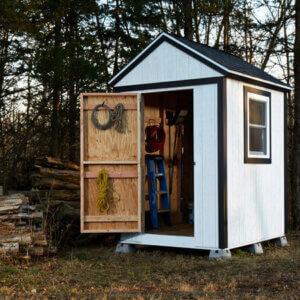
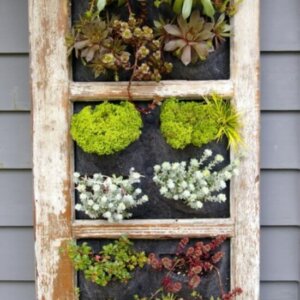
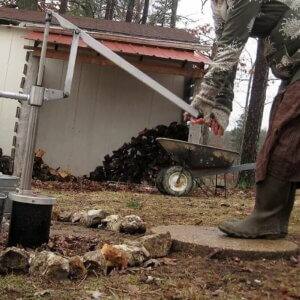





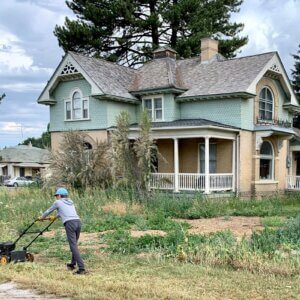


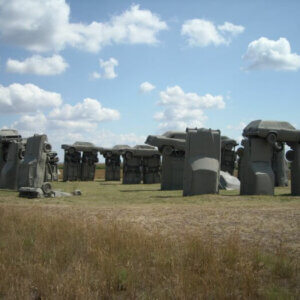

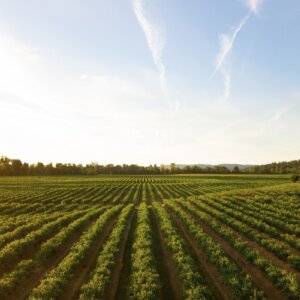










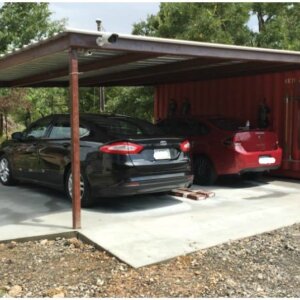
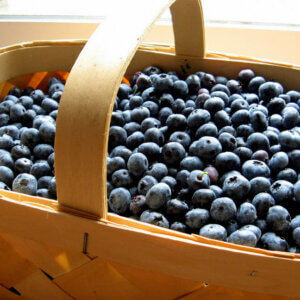







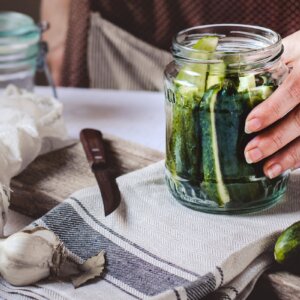
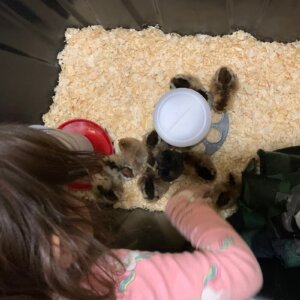
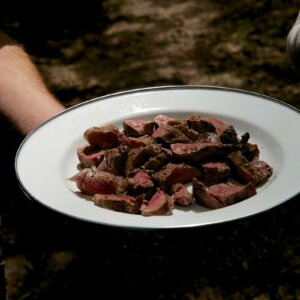


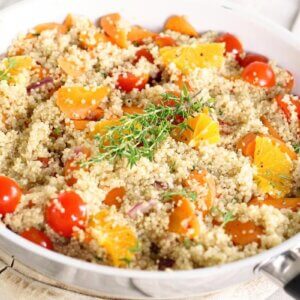

I know some of the buildings up at Dancing Rabbit have propane tanks attached to them, also. But they still create about 10% of the carbon emissions of average Americans… so I think this “dirty secret” can be forgiven in cases where off-gridders are otherwise working hard to minimize their fossil fuel use.
Andy Thomson, the designer of the Sustain Minihome, called propane the “crack cocaine” of off-grid living; he could build a 365 square foot box insulated to the gills and he still needed it for cooking and heat. He experimented with alternatives, like a $25,000 biodiesel powered sterling engine that supplied electricity and hot water but in the end it was back to propane.
The minihome is now in a “green trailer park” and I have it converted to electric heat from Bullfrog green power, all wind and water. The carbon footprint is lower and the horrible noisy propane heater is turned off, I hope forever.
Thinking out loud here — would a methane digester be a viable alternative for some off-gridders (and I’m emphasizing “viable”)?
In many developing countries they just put a lid with a valve on the septic tank and have a hose that goes straigh to the gas-powered stove. Hyper low tech.
Some of my off-grid buddies cook on “rocket-stoves”, hyper efficient twig burners with so little smoke that you can use them inside in a drafty house. Of course, drafty houses aren’t appropriate for many climates.
Using electricity to heat/cook is not really a wise use of energy. Amory Lovins compares it to “using a chainsaw to cut butter.” It takes about 20-40 solar panels to power an electric burner in real time…
My alternative energy prof. in college used a similar analogy to describe splitting an atom to toast bread
Well, methane will still produce CO 2. I would look to a substance that is 100% clean and green like seawater or regular fresh water. Water burns at 5000* with a little mosture as it’s emmissions. No CO 2, so you can use it to cook, heat, and power with. Their is so much for you to learn. I have designed a system that works very good and will change the world one day. It’s called; Seawater Energy Systems (SES) and one day it will be marketable, it is a mater of funding now. You can start by learning about Stan Meyers, Solar Power for the batteries needed… yes, I have designed a way to your a generator without power/fuel. That is the question to ask and figure out the answer. I did and you can to one day. Good luck. Oh, keep ventilated and sparks away from your experiments.
Can you explain how water burns at 5000 degrees….?
So why not grid interconnect for electric and over time add more and more alternative energy as funds become available while at same time using wood masonry furnaces for as much baking as possible, heat – can heat hot water in these with coils for heating and eventually potential for sterling engine for electic generation???
In some cases, a grid connection’s not available (this may be the case with Jennifer — I know she lives waayy out). And, of course, some choose not to connect. Wood-fired heat/hot water are also options — my uncle does that even though he is grid-connected.
Yep, no grid power available on my homestead. We have to have alternative sources or live without.
Cooking with wood is not fun when it is 100 degrees out.
Actually, this is a very good time to solve this problem. The fact is that most off-grid systems are frequently producing surplus electric power. If the batteries get charged up during the daytime, then the charge controller turns them off or to a very slow rate of charge. There is really no reason why this surplus could not be put to use to generate hydrogen gas for cooking and other purposes. To do this would require some engineering, but I believe that such a product that would replace propane with hydrogen for small to medium energy-intensive uses, would be well accepted in the market place. Cooking for example requires a very small amount of gas. There is no reason that a hydrogen on-demand system could not meet this requirement. I have thought a lot about how to accomplish this, but I am working on other things at the moment at http://lightontheearth.blogspot.com/ . If there are any engineers or folks experienced in gas combustion system that would like to take a crack at solving this problem, I would like to hear from you.
Yes, you are so right. Hydrogen and Oxygen from water is the future fuel. I have designs for a BB-Q, Stove, Heaters and propultion projects I am working on. I have a complete system called Seawater Energy Systems (SES). Products are Energy, Fuel and Fresh Water for seawater. It’s been a passion of mine form the 80’s. My truck uses water as a fuel extender. Look, my system will me marketable one day it is just a mater of funds now. So, keep a look out for it. For now learn about Stan Meyers as I did and I passed Stan’s work and his work helped me a lot as well as Nicola Tesla. I will have something very easy and safe for you to just add water and turn on to the desired effect… You get it, a rare gift. Be careful and Good Luck.
Propane and petroleum and natural gas are all incredible sources of energy, with either propane or CNG being the “cleanest.”
The real issue here though is that you can only reduce your carbon footprint so much, and there comes a point where going farther does more harm than good. Is it cleaner to just buy and hook up a low-emissions propane system, or invest great time, money, and energy into something marginally cleaner? How much comfort are you willing to sacrifice for going green?
“…without [propane] … couldn’t cook, refrigerate, heat water, or dry clothes…”
Really!
1. Change what you eat! Green veges raw straight out of your garden are best not cooked. Dont fry your steak and eat it hot, salt and dry it in a solar dryer, store it and eat it cold. Lick your plate, pots and utensil’s clean and you dont need hot water for dish washing. When you must cook then a solar oven (insulated box the sun shines into) and solar cooker (parabolic mirror that concentrates the sun to a point where you put the pot) do a great job. So you have cooked meals when the sun is out and raw or preserved food when its not. A new domestic regime for some, but a very gentle and easy-to work one.
(My solar cooker just burned a big hole in the neighbour’s fence, which I have to fix!)
2. Refrigerate what? Use all vegies fresh from the garden and root-cellar or dry the rest. Eat fruit and berries off the trees, and bottle or dry the rest. Dry your meat and hang in bags in a cool place. Fresh milk when the cow is near, else its stored long term as cheese. Use a ‘safe’ like grandma did – at least a tin cupboard hung on a tree in the shade or dug into a cool bank.
And someplaces it snows from time to time. A bit of head shakin’ would go of if an off-gridder was running a propane fridge when they are up to their axles in snow eh! If it gets that cold then make an icebox which would last you thru the year.
3. Heat water. What was that for again? You wash body with a cup of cold water and a cloth. Wash clothes in cold water. If you must then there is probably solar water heater supplier near you who would be willing to help for the usual fee, else make your own.
4. Dry clothes! You are not serious are you. Wash them when they are really dirty, hang under the verandah until dry.
But thanks for the thought-provoking essay, as from what you say these are real issues for many. Reliance on propane leaves you in the hands of the oil companies, which is where you do not want to be.
A lot of the way forwards involves just looking at where you are applying your effort and cash. Make a plan to be a step further on every year every month, and you will be ‘free’ pretty soon.
Hi Nigel,
I’m assuming you are already ‘free’. Do you have a youtube channel or blog you can link to, so we can see how you do it?
At least you are considering the implications of how to live more sustainable. Most of us do not. Each moring it is comforting to turn the switch on and all modern conveniences are there for the asking.
The great benefit of websites like this- interconnectivity accross time and space is to share ideas as to how to make our lives more sustainable. One idea would be to start on this web site a continuint idea site for sustainable issues- such as transportation, heating and cooling, how to handle wastes, how to build sustainable systems, it could be specific such as how to cook (options available), how to heat and cool, how to get around etc,
In your case evidently you do not have access to a source of energy that is totally sustainable and so you are forces to live and use propane- friends of mine that use it – one problem beyond sustainability is the cost of propane.
But by thinking these things through and seeking assistance from communities like this shows gaps in capabililities for issues like this tobe solved easily. Often systems are not quite there yet- fuel cells could be used for heating, electric generation, providing hot water, etc. but they are expeencive and still require some fuel input (natural gas, propane, hydrogen etc,). Solar is initially expensice to develop and implement but costs are coming down every day. I could go on and on but will stop not and say keep searching as to how to live more sustainable every day.
If we could get more Americans to the status of off the grid with propane, we would be much better off in so many ways: a much lower national carbon footprint, less use of fossil fuels (and much less coal), less dependence on imported fossil fuels, etc., etc. Supplementing solar (and/or wind) power with propane doesn’t seem so dirty in the context of our overall energy use. In fact, it will come as news to many Americans that propane would allow them to green their lifestyle without giving up too many conveniences.
I’m very grateful to the “dark green” people who are leading the exploration of sustainable living, but the majority of Americans will never go that far. In fact, when the “dark green” start lecturing the “light green” about hanging on to some of their cherished conveniences, I wonder if it doesn’t form a disincentive even to try.
By the time a critical mass of Americans turns from brown living to light green, the “energy anorexics” will have found multiple ways to do without propane. The light green will follow at a distance–perhaps at less of a distance if the dark green can resist smugness.
Good points! I hope I didn’t come across as smug. That was not my intent.
Effective Solar powered refrigeration from modified Einstein cycle fridge , and cooler underground temperature differentials? Some Canadians exploit ground temperatures using heat pumps for entire home heating/cooling schemes ! How much is hidden, some even deliberately from us?
Tell All site : some of the corporate manipulations here!
http://www.cosmoloan.com/funding/3-world-changing-innovations-held-back-by-corporations.html#comments
Ontario Canada farmers make methane from manure, run whole farms, even export methane fueled electricity to grid for a bonus cash crop, then use the slurry for top-soil building, relatively odorless fertilizer. Gobar Gas you Google you see! Basics are clear here. Aquaponics, fresh veggies and fish for protein, the only one i did not try before my stroke!
The “communal” notion, the one that strikes fear in the hearts of the modern American, but was the life-blood of early America shows its ugly face even here – not enough communication of ideas, arguments, nuggets of information in free exchange – not like the Barn Raising Bees my grandmother spoke of at all!
The Great Corporate American Propaganda Whore fears marijuana, hemp, and ‘communists” even eradicating the communal spirit of the Old West, and before it, the familial approach even to harvesting has been erased from the American mind! Fact is, sharing expenses for transportation by trains, trams, public means were deliberately erased by Genera motors, by tearing up the very rails they ran on in America! We have forgotten so much, so much was condemned, more simply removed from the history books, even free ranging of cattle discouraged from the East, the fencing salesmen, the forerunners to the Whore and her exhortations, her declarations, her mesmerizations of our collective identity as Americans.
Here in Canada ice was cut from frozen lakes in wintertime, and stored under thick layers of sawdust from the lumber mills, until needed in the summer, then brought by horse drawn buggies , sold door to door by the “ice-man”, a whole forgotten industry now.
my propane “Servel” frig – totally motor free, would have been easy to adapt to even a Fresnel lens heating any liquid and by thermal siphon circulating to the heat chamber, and by exposing the “cooling coils ” at the back to colder under-ground temperatures in the summer months could have improved efficiency.
We must search out, share, and discuss all “Off Grid” information free of the profit motive and like the Ubuntu O.S. free on the web, refuse to pay the corporate tax on ideas. http://www.theoildrum.com/node/4971 tells of the safer Thorium LFTR-reactor America let pass, and tells why too – you will be astounded and embarrassed when you see this! China has since taken up the cause, thank goodness and soon enough humanity will benefit.
Pressure canning of garden surpluses crops for winter works well is energy intensive, but not that bad once you get the hang of it. I have kept pressure canned food for up to four years! Dried potatoes – cut into in scallops, using ascorbic acid to prevent browning at cutting time, can be kept for years, dry, in bottles on the shelf, and restored by adding water, soaking and cooking in the normal way. home brewing very rewarding way to store barley crops and surprise! a back yard ful of crop yields gallons of beer! Check the recipes you will see! Wine – making, an all time favorite rhubarb wine, can be made as sweet, champagne, dry, and even table wine – all from a vegetable and a skillful amateur’s hand! Bottles recycle too! Sauerkraut that bumper cabbage crop! I made plastic barrels-full, using wine gas bubbler’s (air-locks) – still eating the damn stuff! Great food value all you need is cabbages, salt, plastic food grade barrels, and patience – cut her up fine, don’t use the green leaves – free winter delight~ Pickles were a favorite – rows and rows of jars filled, the years the cucumbers did good! Even gave much to neighbors! Did dill, sweet and sour, bread and butter pickles, beets, onions (caution here! special onions only) peppers both hot and sweet, beans – yes! fresh young yellow beans make a fantastic winter treat when pickled, even carrots sliced into nice bite sized sticks, not too thick now, and dilled, garlicked lightly, Did all my herbs by sun drying then bought a proper dryer – very effective, but requires electricity, and gets a bit hot to my tastes, too fast too. Even made garlic powder with dried garlic corns, and a spare coffee grinder. Canned chicken, salmon, sucker-fish, pickerel, rabbit, beef, deer, turkey, big caution here! All pressure canned to USDA specs only! See their site for proper instructions!
Super insulation – areogel silicon based – not popular but what else has been off-sided from popular markets? Well worth the nights Goggle-ing around? Always wanted to dry peas, never got to it. In love with Straw Bale, Stack Wood, Cord Wood construction – may fine and very successful examples here in Ontario Canada. Good on you for a nice site! I will be back.
I keep seeing on sites like this and solar power sites how electricity is pretty much out for off grid cooking.
Ok for many it will be but for others it may well be the BEST choice.
A 12 volt fry pan for instance uses between 140 and 180 watts BUT it will cook a meal in a very short time. between around 4 minutes and 15 minutes for me( mostly around 8 to 10 minutes).
That means averaging around 25 to 30 watt hours I would say for a reasonable meal for one or small meal for two in some cases.
Yes there are limits and some things that make it more doable.
Always use a lid, chop steak into chunks, things like that make a big difference. Get to know your appliance and take the power off just before finished can help if it really comes down to a matter of watts. They are only around 6 inches so you will not cook a huge steak.
I am not off grid but I use my 12 volt frypan off a small battery and solar panel seveal times a week. Just had a couple of steak and mushroom sandwiches using very thinly sliced steaks from the supermarket and cooking time was about 7 minutes. I will have the same again later today and that will probably be less than 40 watt hours total for two meals and that will be from a small battery off a 50 watt solar panel.
Maybe for some this could be used alongside propane. A small enough battery can be used dedicated for this with a small solar panel seperate from other off grid systems. For the really committed you could even charge the battery by using things like hand crank generators or bike generators. There are lots of other 12 volt appliances for cooking too. A 12 volt sandwich maker uses as little as 60 watts and while it will take longer (around 15 minutes to toast one sandwich I think ) which might mean you need two for a real time meal, that is still only about 30 watt hours for two. For a family it would be pushing things but for one person would be good.
As for drying clothes from propane (or any heat sourse where I live at least) that is a luxury and unnecessary. here at least clothes dry very quickly most of the time.
NIce post.
Kitchen Appliances pakistan
I don’t have a solution for cooking, but I came up with a solution for refrigeration that requires no fuel, electricity or heat. See US Patent 4624113 (University of Chicago representing Argonne National Laboratory on behalf of the USDOE, assignee). I refined the invention for common refrigeration. See http://skyfridge.blogspot.com
how much would you pay for a gravity free energy device that can be built to produce
a mechanical output to turn a generator 24/7 .
what is your requirement in kwh
a 5kw 24/7 should provide you with sufficent energy for heating and cooking.
may be building larger units for comunity grid
Solar refrigeration does come at a cost, and it is a lot cheaper if you already have an existing setup. The great thing about DC refrigeration is the ability to provide that food preservation source without using inverters, and requiring a single panel and two deep cycle batteries. We offer solar chest freezers that can be turned up to operate as refrigerators (should the need arise) with no modifications: Feel free to take a look here: http://www.c4pinc.com/solar/solar-freezer/
Propane is a very clean fuel. In and of itself, it is not a greenhouse gas and burning propane can release up to 44% less CO2 per unit of energy than burning coal. Pair it with solar and wind and you have a really clean power setup.
An outdoor kitchen with a rocket stove as a more ecological cooking alternative.
Cheers! Bless